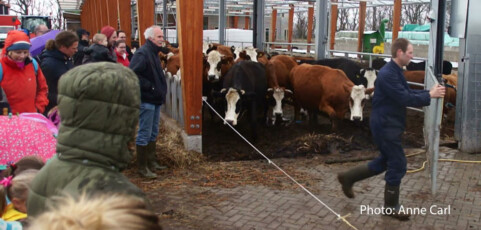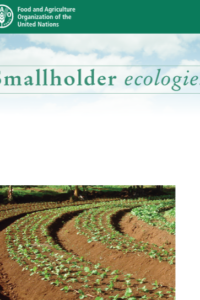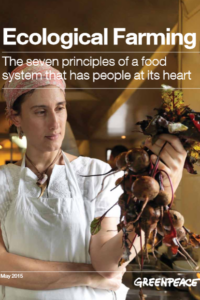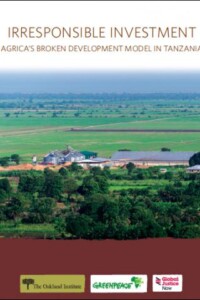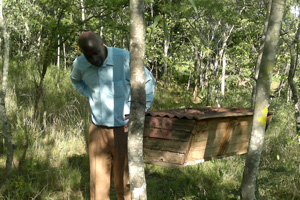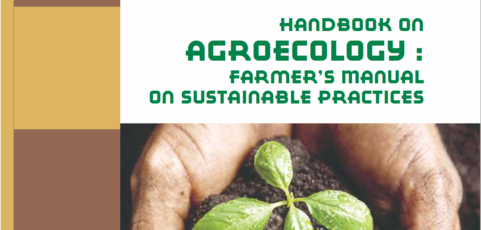“We are pleased to present the report of the International Forum on Agroecology, held at the Nyéléni Center in Sélingué, Mali from 24th to the 27th of February, 2015. This represents the first joint vision of Agroecology from the shared viewpoints of all kinds of small-scale food producing peoples, seen from the perspectives of our social movements. This is the first common statement across constituencies, of the pillars and principles of Agroecology. Read more
Climate Change and the Agriculture Crisis : Agroecology as a Solution
What exactly is the climate change crisis ? How does it affect us ? Are we causing it ? How ? How is it going to affecting our land, water, food and lifestyle ? Can we anything about it ? How ? Why is the practice of agroecology so important in addition to clean energy ?
Should we wait for global agreements on mitigating climate change or act locally, intelligently and consistentl ? Small and marginal farmers must adapt their practices to deal with changing temperatures and more frequent extreme weather events. These adaptations must first and foremost build resilience within the agroecosystem, increasing its ability to continue functioning when faced with unexpected events. How can this be made possible ?
“Climate Change and the Agriculture Crisis – Agroecology as a Solution” throws light on these pressing issues. It is an important addition to our work on small-holder agroecology series of publications. Read the book to understand how agroecology farms hold immense mitigation and adaptation potential and therefore are better suited to deal with the climate crisis.
Future farmers in Europe
“Go for it. Reclaim the fields!” All around Europe, young people with no agricultural background are setting up farming initiatives. Despite the many difficulties these new farmers face, their systems are innovative, viable and sustainable. They are a response to Europe’s emptying countrysides, and their numbers are growing. Why and how did they make this radical choice? What do they gain from their hard work? What did they learn? This short video portrays 8 ‘future farmers’ from France, Ireland, Germany and the Netherlands.
Producers and consumers build new food practices
Initiatives based on ‘short chains’ between farmers and consumers are slowly but surely gaining ground in the Netherlands, a country with a strongly industrialised food system. Looking for ecological, healthy, and fresh food, urban consumers are now creating innovative channels that support local and organic food producers.
Smallholder ecologies
Abstract: Global food and agriculture systems face a series of inter-related challenges; to assure food security for a growing world population while supporting decent livelihoods and reducing the environmental footprint of agriculture. Agroecological approaches can address these challenges by contributing to a greener economy. Agroecological systems are diverse, highly inter-connected and perform multiple functions that benefit society. They place a strong emphasis on environmental integrity and social well-being. Moreover, the groecological mode of production is highly efficient and resilient to disturbances.
This document provides a review of the scientific literature on agreocology, including global, regional, national and local studies. In the Annex, the performance of various agroecological management systems are described and compared. Based on these findings, key steps towards an agroecological transition are outlined
Ecological Farming – The seven principles of a food system that has people at its heart
We are living with a broken food system. It needs to be replaced urgently for the benefit of all people, and the planet. Greenpeace’s Food and Farming Vision describes what Ecological Farming means, and how it can be summarised in seven overarching, interdependent principles – based on a growing body of scientific evidence.
REPORT/Irresponsible Investment: Agrica’s Broken Development Model in Tanzania
Norfund, the UK aid department, and Capricorn are funding the British company Agrica’s industrial rice plantation in Mngeta, Tanzania, which is destroying the livelihoods of smallholder farmers, driving them into debt and impacting the local environment, according to new research by The Oakland Institute released in collaboration with Greenpeace Africa and Global Justice Now.
Agrica’s rice plantation in Tanzania has been used as a showcase project of the G8’s New Alliance for Food Security and Nutrition and the Southern Agriculture Growth Corridor of Tanzania.
The report, Irresponsible Investment – Agrica’s Broken Development Model in Tanzania, documents a catalogue of devastating impacts on local communities.
Bees bring a new buzz to family farming in Zimbabwe
One way that family farmers improve their resilience to both climatic and economic shocks is to diversify what is produced. More and different crops and livestock, particularly local varieties and breeds are being promoted. Two other options stand out too – bees and trees. These have the added advantages of complementing the production of agricultural crops and enhancing the agroecosystem. In Zimbabwe, the Ruzivo Trust has been promoting beekeeping, and the results are showing the sweet taste of success. Bees can help farmers break out of poverty.
Moving from vulnerability to resilience in Africa
In August 2012, the Seidu family had to cope with the bad harvest. Like many farming families in northern Ghana, they had to adopt the ‘one-zero-one’ strategy for the children and the ‘zero-zero-one’ strategy for themselves. ‘One’ represents a meal, ‘zero’ is no meal. So during the lean season, their four children had breakfast in the morning, nothing at midday, and a meal in the evening.
Handbook On Agroecology: Farmer’s Manual on Sustainable Practices
This booklet is aimed to educate and inform farmers about diverse possibility of sustainable and safe food production methods and its techniques. This handbook is designed as a practical guide to these different practices of agroecology and their specific principles, techniques and strategies.We hope that these practical techniques would help to address the needs of especially small and marginal farmers who are contemplating to switch over to low-cost agriculture. We also hope that sustainable agricultural practices mentioned here can easily be adapted by small farmers without involving much input costs.However the set of practices mentioned here are not the only valid roadmap available for adopting low-cost organic agriculture. A skillful agroecology practitioner can come up with their own innovative techniques by applying different agroecological principles to suite particular crops, soil conditions and available natural resources.


